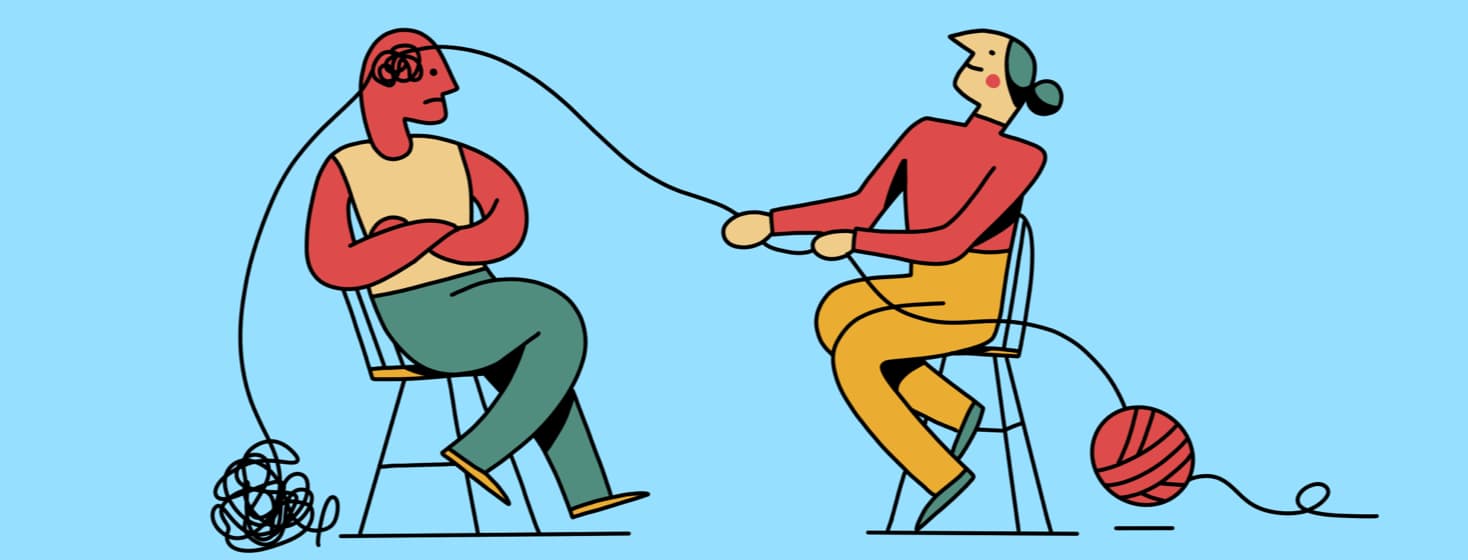Cognitive Behavioral Therapy
As a person with heart failure, I think anxiety can be, and often is, something that impacts both the patient, their family, and any caregivers. As a younger patient, I can speak to my experiences specifically, and there is so much fear around the loss of quality of life. From my perspective, I fear losing that and falling further out of step with my fears. For my family, it's a combination of having a degree of PTSD around the sudden massive heart attack that caused my heart failure, as well as anxiety around what additional future goals will have to be sacrificed on top of what I've already lost. It's just hard all the way around!
I have been in enough therapy after my diagnosis that I can, most of the time, recognize distorted thinking patterns that arise from my past trauma, during the immediate weeks after the heart attack. As a long-term heart failure patient, given that there is never a day I can forget about the condition, what can I do about this? Moreover, it can make me mad! Do any of us heart failure patients or our families deserve to have a moment of our lives snatched away? For me, that is a hard no, because I have been through enough.
My experience with CBT after heart failure diagnosis
That is where cognitive behavioral therapy (CBT) has been helpful for me. From a personal standpoint, CBT is a way to look at my heart failure and what fears might be coming from it, analyze my thoughts, identify what is true, and reframe when appropriate. The best I can describe it is that it's a way of looking at what I think (without judgment) and deciding what stays and goes. It's treating myself with kindness and not shame, but also not allowing my emotions to rule me. It has been so very helpful in giving me tools to deal with difficult situations, whether that is a change in my symptoms, medical news, or the worry of others.
What is cognitive behavioral therapy?
The Mayo Clinic describes CBT as:1
- Identify troubling situations or conditions in your life
- Become aware of your thoughts, emotions, and beliefs about these problems
- Identify negative or inaccurate thinking
- Reshape negative or inaccurate thinking
It may seem too "out there" to some people, and I understand. Also, sometimes our thoughts seem so logical to us that we are not aware of the fallacy of our thought patterns and why they might be rooted in past traumas. I would recommend anyone remotely interested to give it a try. It is hard work, and it does not make past traumas magically go away. However, it does make coping easier. It gives you tools and helps you find solutions. It can allow you to face fears instead of avoiding them, as well as help calm your body and mind.2
In fact, Psychology Today describes CBT as a "solution's-oriented" therapy that "aims to identify harmful thoughts, assess whether they are an accurate depiction of reality, and, if they are not, employ strategies to challenge and overcome them." It is based on the idea that thoughts and perceptions influence behavior.3
I would say it's a very pragmatic and easy-to-understand process – it's much easier to grasp than just saying "therapy." If you have thought that maybe you are on the fence and need help, I would encourage you to explore it!
Do you have a heart failure story? Click the button below to share with our community!

Join the conversation